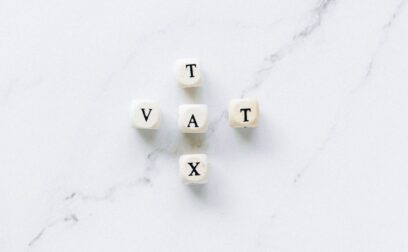If you’re a limited company, you’ll need to pay corporation tax on your profits each year. Sole traders and partnerships don’t need to pay corporation tax as they must pay income tax through self-assessment instead.
This guide explains all you need to know about how to pay corporation tax and the deadlines for doing so.
Who has to pay corporation tax to HMRC?
It’s a legal requirement to pay corporation tax to HM Revenue & Customs (HMRC) if you’re a limited company trading and registered in the UK. You will need to start paying corporation tax once you are turning a profit.
Companies must register for corporation tax when they set up as a limited company. You can do this via the gov.uk website and it must be done within three months of starting to trade. Trading includes buying, selling, advertising, renting a property and employing someone.
To register, you will need to sign into your business tax account. You’ll need your company’s Government Gateway user ID and password to do this – if you don’t have one, you can create one at sign in. You will also need your company’s 10-digit Unique Taxpayer Reference (UTR) which will be posted to you within 14 days of the company being registered with Companies House.
You will need to tell HMRC your company’s registration number, the date you started to do business (your company’s first accounting period will start from this date), and the date your annual accounts are made up to.
When you file your annual accounts with HMRC you will need to pay corporation tax on any profits for the financial year. This includes the money your company makes from doing business, investments or selling assets for more than they cost.
What is the criteria for paying corporation tax?
You will need to pay corporation tax if your business is one of the following:
An overseas company with a United Kingdom subsidiary
If your company is based overseas but has a UK subsidiary, that UK subsidiary must pay UK corporation tax on its worldwide profits. This is because the UK subsidiary is a separate legal entity to the parent company.
By contrast, if an overseas company has set up a UK branch rather than a subsidiary, corporation tax is only charged on UK profits. This is because a branch is not legally separate from the parent company.
A co-operative or club or community group
If you’re a club, co-operative or other incorporated association such as a community group, you will need to pay corporation tax.
A limited company
All UK limited companies must pay corporation tax. It’s the responsibility of the company director to make sure the corporation tax return has been submitted on time and the bill has been paid.
Mandatory requirements for a business paying corporation tax
If you need to pay corporation tax, you must calculate this yourself. This differs to individuals where HMRC will calculate your tax bill based on the details you’ve provided. Use our handy corporation tax calculator to help get you started.
Each year you’ll be required to complete a company tax return, or form CT600. The deadline for submitting your tax return is 12 months after the end of the accounting period it covers and you will need to work out your:
- Profit or loss for corporation tax which will be different to the profit or loss shown in your annual accounts
- Corporation tax bill
You can do this yourself or hire an accountant to prepare and file your tax return on your behalf. Your accounts must be filed to both HMRC and Companies House and you must file them online, unless you have a ‘reasonable excuse’ to file in paper form. A reasonable excuse can include having a serious or life-threatening illness, a partner or close relative dying shortly before the deadline, or computer or software failures. You can also file by paper if you wish to file in Welsh.
Even if you do not owe any corporation tax, you must still file a tax return. If you’ve closed your accounts for the financial year and calculated that you don’t owe corporation tax, you must tell HMRC that you have no tax to pay. To do this, complete the ‘nil to pay’ form or send back the payslip reminder from HMRC with the words ‘NIL due’ written on it.
The way businesses pay corporation tax is changing from 1 April 2023. This means that the main rate of corporation tax is rising from 19% to 25%. However, smaller business with profits of £50,000 or less will continue to pay 19%. The full 25% rate will apply to businesses with profits of £250,000 or more. Businesses with profits of between £50,000 and £250,000 will be charged between 19% and 25% based on how much marginal relief they can claim. You can find out more about this on the gov.uk website.
Note that you can reduce your corporation tax bill by checking if you qualify for various corporation tax reliefs and claiming allowable expenses. All companies can deduct costs for expenses that have been used solely for business purposes such as office equipment and business-related travel and accommodation. You can deduct these costs from your company’s profits before tax when you prepare your accounts.
You can also save money by paying your tax bill early as HMRC will repay you some of it as interest at a rate of 0.5%.
On the other hand, if you don’t file your tax return on time, there will be a penalty to pay. You’ll be charged £100 if you’re a day late and another £100 if you still haven’t filed after three months. After six months, HMRC will estimate your corporation tax bill and add an extra 10% of the unpaid tax. After 12 months, another 10% is added. If your tax return is late three times in a row, HMRC will increase the £100 penalties to £500 each.
HMRC corporation tax payment deadline
Your corporation tax payment deadline will vary depending on the profits your business makes, as outlined below:
For businesses with up to £1.5 million taxable profit
If your taxable profits are less than £1.5 million, your business has nine months and one day after the end of the accounting period to pay the tax due. The accounting period is usually the financial year of your business, but you might have two accounting periods in the year you set up your company.
For businesses with more than £1.5 million taxable profit
If your business has taxable profits of more than £1.5 million, you will need to pay your corporation tax in instalments, which means the process is different.
Be aware that the deadline for paying corporation tax is before the deadline for filing your company tax return. This means you will need to prepare your tax return well ahead of the deadline to be able to work out how much corporation tax to pay.
Payment details for your corporation tax bill
There are a number of different ways to pay your corporation tax bill. Some payment methods are quicker than others so make sure you will still meet the deadline.
Bacs & CHAPS bank details
The quickest way to pay your tax bill is through online or telephone banking by Faster Payments or CHAPS. This will go through the same day or next day. You can also pay by Bacs but this will take up to three working days.
For all of the above payment options, your notice to deliver your tax return or any reminder from HMRC will tell you which account to pay into. If you’re not sure, use HMRC Cumbernauld. The account details are below:
| Sort code | Account number | |
| HMRC Cumbernauld | 083210 | 12001039 |
| HMRC Shipley | 083210 | 12001020 |
Always use your 17-character corporation tax reference payment number for the accounting period you’re paying.
Corporation tax can also be paid by direct debit, debit or corporate credit card (not a personal credit card) or at your bank or building society. All of these payment options take three working days, although if you’re setting up a direct debit for the first time, it can take up to five working days.
If issuing multiple payments
If you want to make a single payment to cover more than one company for the same accounting period, you can send an online CHAPS enquiry form. You will need to include your name, contact number and the type of tax you wish to pay.
HMRC’s banking address
Should you need it, HMRC’s banking address is as follows:
Barclays Bank PLC
1 Churchill Place
London
UK
E14 5HP
Online corporation tax service
Most businesses should use the gov.uk online service to file their company’s tax return with HMRC and their accounts with Companies House. You can file your tax return and accounts at the same time if they are for the same accounting period. The service will automatically convert your accounts to the required format.
You will need your company’s annual accounts, Government Gateway user ID and password and Companies House password and authentication code if you’re filing your accounts at the same time.
Online company accounts management
As a limited company, you must keep records about the company itself, as well as financial and accounting records. Accounting records should include:
- All money received and spent by the company
- Details of assets owned by the company
- Debts the company owes or is owed
- Stock the company owns at the end of the financial year
- The stocktakings you used to work out the stock figure
- All goods bought and sold
You must also keep records of money spent by the company, such as receipts, as well as records of money received by the company, such as invoices and sales books. You will need all of this to prepare and file your annual accounts and tax return. You can be fined £3,000 by HMRC or disqualified as a company director if you do not keep accounting records.
Filing your annual accounts to Companies House online will save your business time and money. The online filing service also includes built-in checks to help reduce the risk of making a mistake. Once your online filing has been received, you’ll receive confirmation almost immediately. If your filing is rejected, you can quickly correct it and resend it.
Online users also get access to protected online filing which helps protect your company from unauthorised changes to your records, as well as email reminders to tell you when your company’s accounts are due. Additionally, you can use third party software to file most of your Companies House information online.

































 yet? Register here!
yet? Register here!